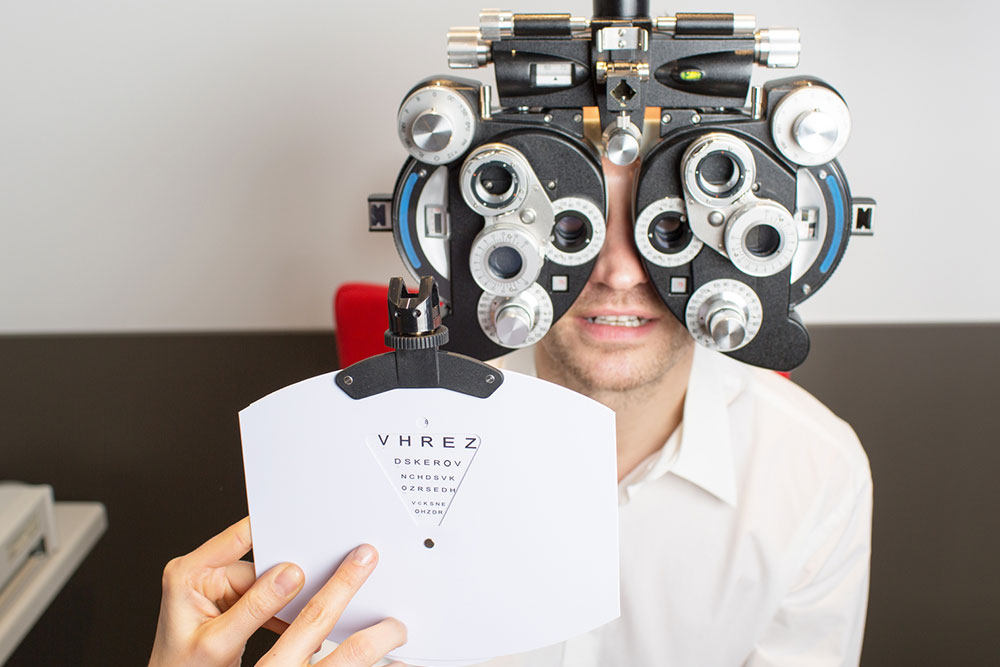
12 Essential Tips to Maintain Eye Health
The eyes play an indispensable role in shaping our perception of the world around us. Unfortunately, it is estimated that almost 20 million persons nationwide suffer from vision impairment due to an eye condition. While consulting an ophthalmologist is essential for timely treatment, it is crucial to protect the eyes to prevent such conditions from developing or escalating. Here are certain basic yet essential ways to maintain eye health and prevent these diseases:
1. Avoid stepping out without shades during the day
Exposure to direct sunlight over a period of time can contribute to the onset of macular degeneration, cataracts, and damage to the cornea. Therefore, one should always cover the eyes with shades while stepping out in the sun.
2. Limit the use of gadgets
While it is impossible to imagine life without electronics today, gadgets like mobile phones, iPads, and the TV emit blue light, which can lead to retinal damage over time. Overuse of these gadgets can cause ocular problems like dry eyes, blurred vision, dizziness, and headaches. Hence, it is important to limit one’s use of these devices, particularly refraining from them before bedtime. Today, several smartphones are equipped with options to monitor screen time and time spent on apps. Such strategies help users limit their use of gadgets.
3. Have foods high in beta-carotene
Beta carotene, found in various naturally occurring foods, converts to vitamin A in the body and plays a vital role in preventing eye problems. Carrots, papayas, broccoli, red bell peppers, and sweet potatoes are some food sources of beta-carotene.
4. Exercise regularly
It has been found that moderate-intensity exercises like brisk walking, cycling, jogging, and swimming help reduce eye pressure and one’s susceptibility to glaucoma. Therefore, it is important to avoid a sedentary lifestyle and incorporate exercise into one’s daily routine.
5. Engage in eye exercises
Eye exercises, which may be as simple as taking “blink breaks” to blink and rest the eyes or staring at a distant and nearer object for 15 seconds each, can actually help enhance eye health and prevent potential eye problems.
6. Have omega-3-rich foods
Studies have linked the intake of omega-3 fatty acids with enhanced functioning of the meibomian glands, thus offering protection against problems like macular degeneration and dry eyes. Some of the foods rich in omega-3 fatty acids include fatty fish like tuna, salmon, and mackerel; walnuts; eggs; Brussels sprouts; and chia seeds.
7. Avoid compromising on sleep
Lack of sleep is associated with several ocular conditions, including eye spasms, swelling, redness, dark circles, and twitching. It also increases one’s risk of developing age-related eye conditions over time. Hence, it is essential to ensure at least seven hours of good-quality, undisturbed sleep every night. Today, smartwatches allow one to track one’s sleep quality and duration for particular sleep stages, including REM, light sleep, and deep sleep. Having a smartwatch on while sleeping can help one maintain a healthy sleep schedule.
8. Monitor blood sugar levels consistently
High blood sugar levels increase one’s risk of diabetic retinopathy and glaucoma. Therefore, it is important to monitor one’s blood sugar levels consistently and ensure that it is under control to prevent the onset of such conditions. In addition, one should strictly limit or avoid the intake of added sugar sources like desserts, instant cereals, and confectioneries.
9. Have plenty of water
Hydrating the eyes is an essential part of eliminating bacteria and preventing dry eyes. Therefore, one should have plenty of water throughout the day to ensure adequate eye lubrication.
10. Avoid going to bed with contact lenses on
Having regular or colored contact lenses on while sleeping can irritate the eyes, increase one’s risk of developing eye infections, and lead to chronic eye damage. One must avoid wearing contact lenses for long periods and remove them without fail before going to bed.
11. Avoid packaged and processed foods
Packaged and processed foods like fries, bacon, sausages, and hotdogs are high in sodium and trans fats, which can increase blood pressure and trigger eye problems like hypertensive retinopathy. They can also increase one’s risk of damage to blood vessels. Thus, one should try to replace processed foods with homemade foods rich in essential nutrients like healthy carbs and fats, proteins, vitamins, and minerals.
12. Steer clear of harsh lights
Exposure to harsh lights over a period of time can trigger vision issues and retinal damage. Hence, it helps to install radiant lights that are not excessively bright and avoid looking at lights directly.
A healthy lifestyle, limited exposure to UV rays, and sufficient exercise can help maintain eye health over time and prevent ocular diseases.


